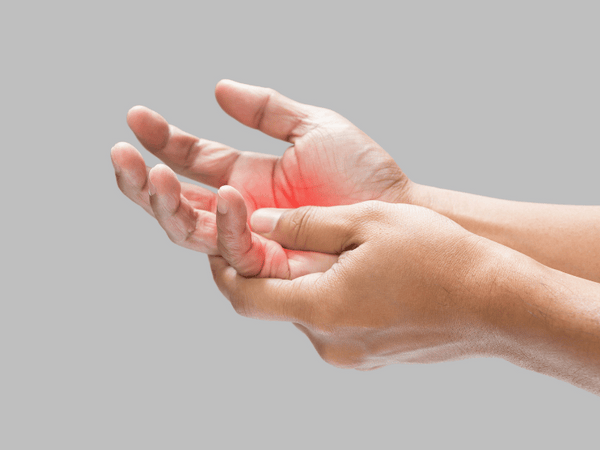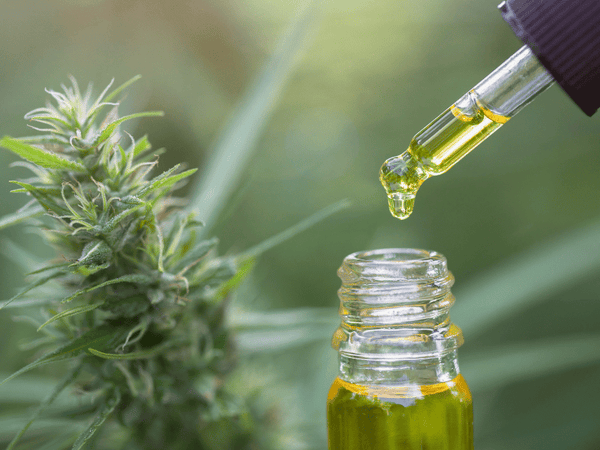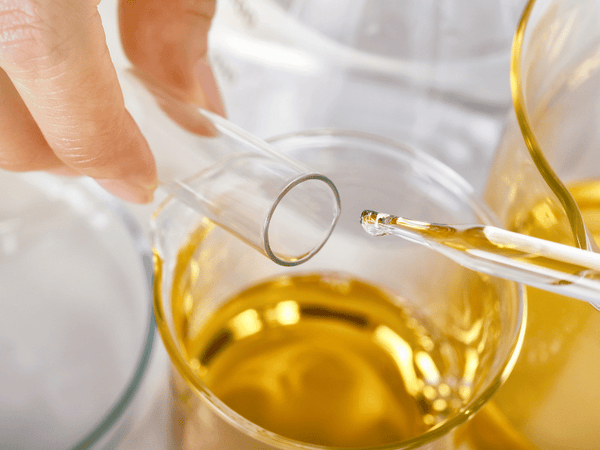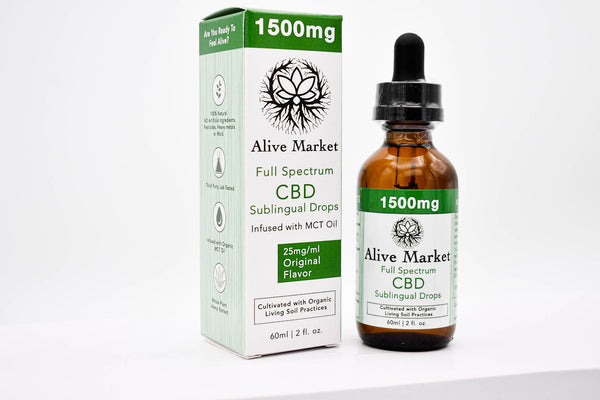Tremors, characterized by involuntary rhythmic movements of the body, can significantly impact one's quality of life. Whether stemming from conditions like essential tremors or Parkinson's disease, managing tremors often involves exploring diverse treatment options beyond conventional medication. Amid this quest for alternative pharmaceutical drugs, cannabidiol (CBD) has emerged as a subject of increasing interest and research.
In recent years, CBD, a non-psychoactive compound derived from the cannabis plant, has gathered attention for its potential therapeutic effects. While its popularity has soared in various wellness circles, its application in managing tremors has sparked curiosity and debate alike.
This article delves into the realm of CBD for tremors, shedding light on its mechanisms, benefits, and considerations for those seeking relief from these debilitating symptoms. Whether you're navigating your own tremor journey or seeking insights for a loved one, join us as we explore the intriguing intersection of CBD and tremor management.
Understanding Tremors

Tremors manifest as involuntary, rhythmic movements of certain body parts, with muscle movement often occurring in the hands, arms, head, vocal cords, or legs. These movements can range from subtle to severe, impacting various aspects of daily life, including muscle movement and cognitive abilities such as fine motor skills, speech, and overall coordination of muscle movement.
There are several types of hand tremors here, each with a broad spectrum of distinct characteristics and underlying causes. Essential tremor, the most common form of hand tremor, typically involves rhythmic, involuntary shaking of the hands and entire body, although it can also affect the voice and head. Parkinson's tremor, or hand tremors associated with Parkinson's disease, tends to manifest as a resting tremor, often appearing when the affected limb is at rest and diminishing with movement.
The causes of hand tremors are multifaceted, encompassing a range of factors such as neurological conditions, an age-related genetic predisposition, medication side effects, and certain medical disorders. While hand tremors and neurological diseases in themselves are often benign, they can significantly impact an individual patient's quality of life, leading many to explore alternative treatments in search of relief from hand tremors.
What is CBD?

CBD, short for cannabidiol, is a naturally occurring compound found in the cannabis plant. Unlike its counterpart, tetrahydrocannabinol (THC), CBD does not have the psychoactive effects commonly associated with cannabis use. Instead, it is celebrated for its potential therapeutic properties and wide-ranging applications in wellness and healthcare.
CBD oil can be sourced from various strains of oil that help the cannabis plant, including the oil that helps the hemp plant, which contains high levels of CBD and minimal amounts of THC. This distinction between hemp oil and cannabis is significant for medical marijuana, as medical marijuana products such as hemp-derived CBD are legal in many regions, provided they contain less than 0.3% THC.
In recent years, CBD has surged in popularity, finding its way into an array of products, including oils, tinctures, capsules, edibles, topicals, and more. These products offer consumers diverse options for incorporating CBD into their daily lives and routines, catering to individual preferences and needs.
Despite its growing prevalence, CBD remains subject to regulations and oversight, with laws varying by region. It's essential for consumers to research and understand the legal status of CBD in their area, as well as the quality and authenticity of the products they purchase.
Alive Market Full Spectrum CBD Oil
Alive Market CBD Oil has garnered attention from medical cannabis for its potential to manage various health conditions and neurological issues, including tremors. Understanding how this CBD oil works in alleviating tremors requires delving into its components and their interaction with other cannabinoids in the body.
"CBD oil, or cannabidiol, is the primary compound in Alive Market CBD Oil. It interacts with the endocannabinoid system (ECS), a complex network of receptors, enzymes, and endocannabinoids spread throughout nerve cells in the body. The ECS plays a crucial role in regulating various physiological processes, including motor control.
Tremors, characterized by involuntary muscle movements, can result from various factors in the neurological and nervous systems, including neurological conditions like Parkinson's disease. Research suggests that CBD's interaction with the ECS may help modulate these abnormal movements by influencing neurotransmitter activity and reducing inflammation of the nervous system and immune system itself.
The dosage and method of administration of Alive Market CBD Oil can significantly impact its effectiveness in managing tremors. Consulting with a healthcare professional experienced in cannabinoid therapy is crucial for determining the appropriate dosage and monitoring its effects.
In conclusion, Alive Market CBD Oil, or hemp oil, holds promise as a natural remedy for managing tremors due to its interaction with the endocannabinoid system and its potential to modulate neurotransmitter activity and reduce inflammation. Further research is needed to fully understand hemp oil, its efficacy, and optimal usage in treating tremors and tremor-related conditions.
How CBD Works for Tremors
Understanding how CBD interacts with the body's systems can provide insight into its potential efficacy in managing tremors. The endocannabinoid system (ECS), a complex network of receptors, enzymes, and endocannabinoids that is essential for controlling a number of physiological functions, is the main mechanism via which CBD works.
Within the ECS, CBD interacts with cannabinoid receptors known as CB1 and CB2. Whereas CB2 receptors are mainly present in immune cells, peripheral tissues, and the neurological system, CB1 receptors are mainly found in the central nervous system and motor neurons.
By modulating the activity of these receptors and influencing the release of neurotransmitters, CBD may exert its therapeutic effects on tremors and associated symptoms.
Research suggests that CBD's interaction with the ECS may help regulate abnormal neuronal activity and reduce excessive signaling within the brain and spinal cord, potentially mitigating the hyperexcitability of nerve activity in the spinal cord that contributes to tremors. Additionally, CBD exhibits anti-inflammatory and neuroprotective properties, which could further support future research into its potential as a tremor-management agent.
Studies investigating the effects of CBD on tremors have yielded promising results, although more research is needed to fully elucidate its mechanisms and therapeutic potential. Nonetheless, previous research, anecdotal reports, and early clinical findings suggest that CBD may offer a novel approach to alleviating tremors and improving the quality of life for individuals affected by these debilitating symptoms.
Benefits of Using CBD for Tremors
"CBD" hemp oil has garnered attention for its potential to alleviate tremors and improve motor control in individuals affected by various tremor-related conditions. While research into CBD's efficacy for tremors and other treatments is ongoing, preliminary findings and anecdotal reports suggest hemp oil has several potential benefits:
Reduction in Tremor Severity
Some studies have suggested that CBD may help reduce the severity and frequency of tremors, leading to significant improvements in motor function and overall quality of life. By modulating neurotransmitter activity and calming hyperexcitability in the brain, CBD may offer a novel approach to managing tremor symptoms.
Improvement in Motor Control
CBD's interaction with the endocannabinoid system may contribute to enhanced motor control and coordination of the essential tremor tremors, potentially reducing the amplitude and intensity of essential tremor movements. This improvement in the motor function of CBD for essential tremors could translate to greater independence and functionality for individuals living with both essential tremors and tremors alone.
Potential for Alleviating Associated Symptoms
In addition to its beneficial effect of targeting hand tremors directly, CBD may also address associated symptoms commonly experienced by individuals with tremor-related conditions. These may include anxiety, sleep disturbances, muscle stiffness, and cognitive impairment. By treating hand tremors and addressing these secondary symptoms, CBD may offer comprehensive relief and improve overall well-being.
While the exact mechanisms underlying CBD's beneficial effects on tremors are still being elucidated, the growing body of research and anecdotal evidence suggests that CBD holds promise as a potential therapeutic agent for tremor management. However, it's essential to approach CBD use with caution and consult with a healthcare professional, especially when incorporating it into an existing treatment regimen.
Potential Risks and Side Effects
While CBD holds promise as a potential treatment for tremors, it's essential to be aware of the potential risks and side effects associated with its use. While generally considered safe, CBD can cause adverse effects in some individuals, particularly at higher doses or when interacting with other medications.
Gastrointestinal Disturbances
Common side effects of CBD may include nausea, diarrhea, and changes in appetite. These gastrointestinal symptoms are typically mild and transient but may be bothersome for some individuals, especially when first starting CBD treatment.
Fatigue and Drowsiness
CBD may cause feelings of fatigue or drowsiness, particularly in high doses or when taken in higher doses. This side effect can impact daily functioning and may warrant caution when operating heavy machinery or engaging in activities requiring mental alertness.
Potential Drug Interactions
CBD can interact with certain medications, potentially altering their effects or metabolism in certain chemicals in the body. Individuals taking medications metabolized by the liver should exercise caution when using CBD, as it may interfere with the liver enzymes responsible for drug metabolism.
Risk of Contamination
Quality control and regulation of CBD products vary, raising concerns about the purity and safety of some products on the market. Contaminants such as pesticides, heavy metals fatty acids, and solvents may be present in low-quality CBD products, posing potential health risks to consumers.
Psychiatric Effects
In some cases, CBD use may exacerbate underlying psychiatric conditions, such as some neurological disorders or issues such as anxiety or depression. While CBD is often touted for its anxiolytic properties, individual responses can vary, and some individuals may experience increased anxiety or mood changes with CBD use.
It's crucial for individuals considering CBD for tremor management to discuss their options with a healthcare professional, particularly if they have underlying medical conditions or are taking medications. A healthcare provider can offer personalized guidance, monitor for potential interactions, and help optimize treatment strategies to minimize risks and maximize benefits.
How to Use CBD for Tremors
When considering CBD as a potential treatment for tremors, it's essential to approach its use thoughtfully and responsibly.
Here are some practical considerations to keep in mind:
Dosage Guidelines

CBD dosing can vary depending on several factors, such as body weight, metabolism, and the severity of tremor symptoms. It is best to start with a low dose and gradually increase it as needed, under the guidance of a healthcare professional. CBD dosages typically range from 10–100 milligrams per day, but individual responses may vary.
Administration Methods

CBD products come in various forms, including oils, capsules, edibles, topicals, and vape liquids. Each administration method offers unique advantages and considerations essential tremor others. For tremor management, oral administration methods like oils or capsules may be preferred for consistent dosing and long-lasting effects.
Quality Considerations

When selecting CBD products, it's crucial to choose high-quality, reputable brands that prioritize purity and transparency. Look for products that have undergone third-party testing for potency and contaminants, and opt for organic, full-spectrum CBD extracts whenever possible to maximize therapeutic benefits.
Consultation with Healthcare Professionals

Before starting CBD treatment for tremors, it's important to consult with a healthcare professional, particularly if you have underlying medical conditions or are taking medications. A healthcare provider can offer personalized guidance, monitor for potential interactions with other cannabinoids, and help optimize treatment strategies to achieve the best outcomes.
Monitoring and Adjustment

As with any treatment, monitoring your response to CBD and adjusting your dosage as needed is crucial for optimizing efficacy and minimizing side effects. Keep track of your tremor symptoms, mood, and overall well-being, and communicate any changes or concerns with your healthcare provider.
Conclusion
In the realm of disease-essential tremor management, the potential of CBD as a therapeutic agent for neurological disorders offers both promise and intrigue. While research into its efficacy in treating essential tremors is still evolving, preliminary findings and anecdotal reports suggest that CBD may hold significant potential for alleviating tremors and improving the quality of life for individuals affected by these challenging symptoms.
Through its interaction with the body's endocannabinoid system, CBD may modulate neuronal activity, reduce hyperexcitability, and offer relief from tremor-related symptoms. Additionally, its anti-inflammatory and neuroprotective properties may further support its role in tremor management, addressing both neurological disorders' primary symptoms and associated challenges.
However, it's essential to approach CBD use for tremors with caution and diligence. Consulting with healthcare professionals, carefully selecting high-quality products, and monitoring treatment progress are critical steps in ensuring the safe and effective use of CBD as part of a comprehensive tremor management plan.
As research continues to shed light on CBD's mechanisms and potential benefits, individuals living with tremors have reason to remain hopeful. By sharing experiences, supporting further investigation, and collaborating with healthcare providers, we can navigate the complexities of CBD use for tremors and strive for improved outcomes and quality of everyday life together.
Ultimately, while CBD may not offer a cure for tremors, its potential as a therapeutic tool underscores the importance of exploring diverse treatment options and embracing a holistic approach to managing tremor-related conditions. With continued research, advocacy, and innovation, we can unlock new possibilities for those living with tremors and pave the way toward a brighter future.


